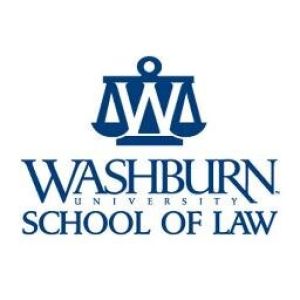Washburn Law scores higher marks
June 1, 2014
Washburn Law was included in the Princeton Review as one of the best 169 law schools in the country. That review is out of 203 accredited schools.
“We recommend Washburn Law as one of the best institutions a student could attend to earn a law school degree,” said Robert Franek, Princeton Review senior vice president publisher.
But the publication that holds the most weight among future lawyers, wannabe’s and law schools themselves, is the U.S. News and World Report, which has been publishing the rankings for about 25 years. Washburn Law was ranked 115.
Top-Law-Schools.com posted the article “Dissecting the Rankings: The U.S. News and World Report,” and says “These are the criteria U.S. News uses, listed in descending order of weight:”
25 percent – peer assessment score
15 percent – assessment score by lawyers/judges
14 percent – employment rate nine months after graduation
12.5 percent – median LSAT scores
10 percent – median UGPA
9.75 percent – average instruction, library and supporting services
4 percent – employment rate at graduation
3 percent – student/faculty ratio
2.5 percent – acceptance rate
2 percent – Bar passage rate
1.5 percent – financial aid
.75 percent – library resources
U.S. News and World Report use 12 metrics, weighted differently in accordance with importance, to evaluate law schools. The raw scores are then normalized with the first place school (Yale, always) scoring 100.
The National Jurist article talks about experiential learning in its article of the Best Schools for Practical Training.
“Experiential training is becoming a bigger part of law school curriculums,” said Mike Stetz, author.
The article goes on to list the schools with the most comprehensive and experiential learning opportunities. They assigned a weight to each category that had simulated, faculty supervised hands-on experiences. Weight was given to externships for the value students receive for “real-life practical training.” Bonus points were given for “unique innovations to make learning models even more intensive,” according to Stetz.
There were 21 schools who won an A+ or A. Washburn Law school made an A- along with 14 other schools. Stetz pointed out that the legal market is “glutted” with law school graduates who can handle a tough professor, but are incompetent in all the practical needs a lawyer must have. Washburn Law can pat itself on the back for doing so much right when it comes to turning out well-learned future lawyers.
“Our goal is to increase the visibility of Washburn University,” said Thomas Romig, dean of Washburn Law. “Last year we were number 11 in legal research and writing [according to U.S. News]. We try to look for consistency and performance and we think we’ve done that quite well.”
Romig says there are so many different entities that like to rank and rate law schools. He said that this year in U.S. News, WU Law jumped up 25 places in its standing. The school with the highest increase jumped 26 places.
“We put a lot of emphasis on the best skills a lawyer can have to be able to ‘hit the ground running when they graduate,'” said Romig “One of the best skills a lawyer can have is being able to do legal research and writing legal analysis. We put a lot of emphasis on that. We think that when a lawyer leaves WU Law they should be able to do legal research, writing and advocacy. Advocacy is an essential skill as a lawyer.”
Lawyers and transactional lawyers need to be able to write in a way that is precise and persuasive.
“That’s what good lawyers do,” said Romig.
Rick Smith is a transfer student in his third year of law school. Smith transferred from Ohio Northern University Law School, partly because he saw opportunities for working in a capital city.
“Washburn University and Topeka as a capital city could give me a lot of connections I did not feel I was getting in my former school,” said Smith.
Smith does not feel that ranking has much to do with the reality of a good or bad law school, but felt that what determines a good law school is one that creates good lawyers and prepares them for what happens after graduation.



